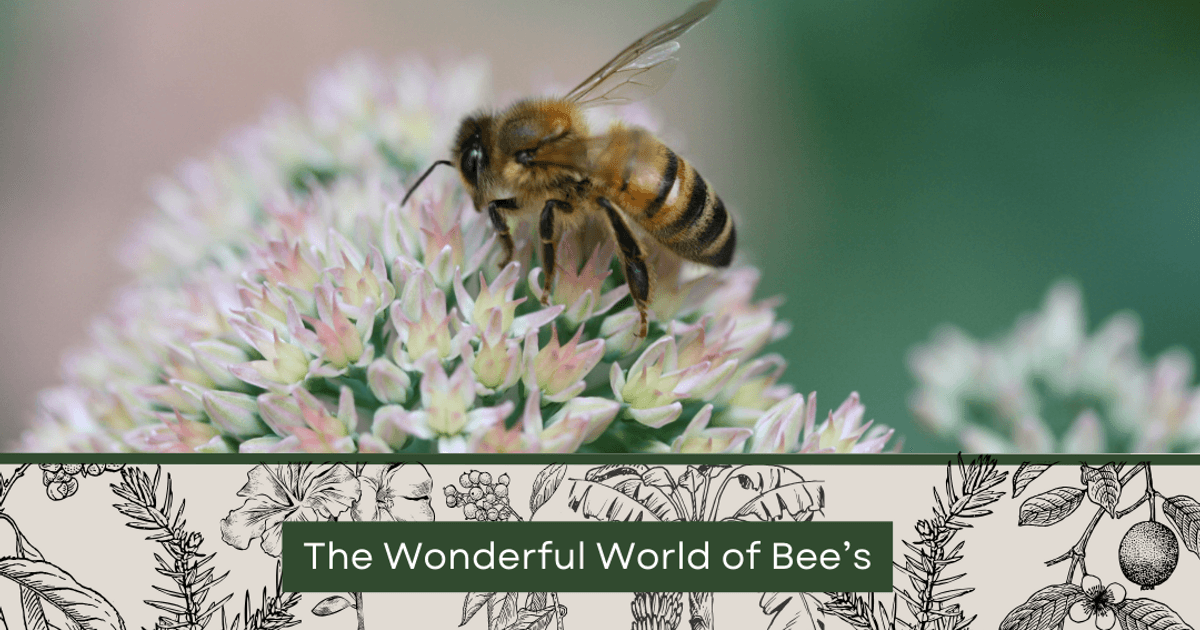
The Wonderful World of Bees | An Interview with Brigit Strawbridge Howard
Source FM presenter Chloé Eathorne, host of The Wildflower Hour recently spoke with bee advocate, wildlife gardener and naturalist Brigit Strawbridge Howard in Falmouth's Victorian Cemetery.
Cornwall is full of vibrant natural spaces, and this episode delves into life in late spring in the Cornish cemetery blooming with wildflowers, as the pair go on a search alongside local nature filmmaker Kevin Thomas, for the Fat-headed Bee, the Cuckoo bee, and the Nomad bee, and discuss the many different species of bees and birds in the UK, which call this beautiful area home.
Brigit, author of ‘Dancing with Bees: A Journey Back to Nature’ (THE SUNDAY TIMES BEST NATURE WRITING BOOKS 2020), talks about her journey of rediscovering her connection to nature and discusses the ways in which we can re-connect with nature ourselves, and how we support and protect our local wildlife and bee species from our own gardens.
The conversation began as we explored a fallen Pine tree left to be reclaimed by nature. The benefits of leaving dead wood, which provides sources of food and shelter for insects and wildlife meandered into childhood memories and we discussed the value of connecting with nature for our mental health and well-being, and the benefits of eco therapy.
Brigit is a patron of Caring for God's Acre, a conservation charity for Burial Grounds across the UK, with the mission of protecting and rejuvenating beautiful havens of heritage and wildlife. The pair discuss ‘Love Your Burial Ground Week’ which occurs each June, a celebratory week which has been running for many years, encouraging all to celebrate these fantastic places in any way you choose. From local history talks, volunteering work parties and even teddy bear picnics!
Brigit, also an ambassador for Kernow Conservation, talked about the work of the community-led conservation organisation, which developed from a student group at the Penryn campus of the University of Exeter. The team are passionate about protecting, enhancing, and connecting habitats, reintroducing lost species, and monitoring Cornwall’s biodiversity. They are currently working on the reintroduction of water voles, an important ecosystem engineer, across the county.
Durning our exploration of the cemetery, we came across a pair of researchers checking on the recently installed jackdaw nest boxes as part of the Cornish Jackdaw project. Chloé spoke with Lois, a researcher from the University of Exeter, who discussed the blue tits currently inhabiting the nest boxes and was given a demonstration on how the boxes are checked. Throughout the day, Brigit checked in on the Merlin Bird ID app, whose features allow users to record snippets of bird song and aid in identifying species matches. It was enlightening to discover the vast multitude of species of birds we heard during our exploration, including Chiffchaff, Greenfinch, Jackdaw, Nuthatch, Blackbird and Blue Tit, which further highlighted the importance of these habitats for our local wildlife.
There are a multitude of benefits to leaving spaces like these which not only serve as a place for reflection, but also serve as haven for insects, plants, birds and wildlife, and provide an opportunity for the community to connect with nature.

It’s spaces and conversations like these that remind us of the importance of practicing the art of noticing, which is so often overlooked in today’s faced-paced society. The next time you’re out and about, take a moment to really notice and appreciate the vibrant world of nature and that is all around us.
You can listen to the show here
Thanks to Castle Beach Films


